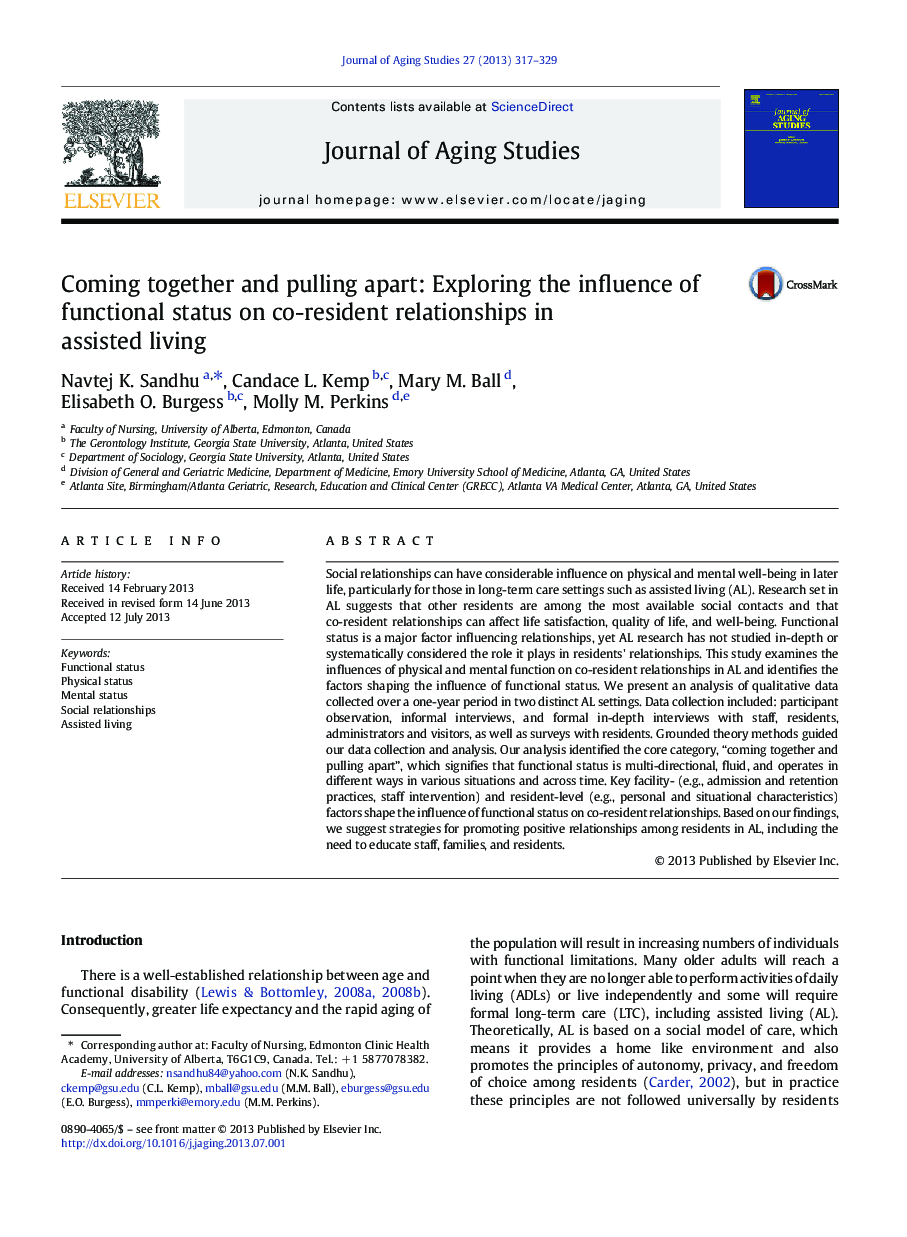| Article ID | Journal | Published Year | Pages | File Type |
|---|---|---|---|---|
| 10513172 | Journal of Aging Studies | 2013 | 13 Pages |
Abstract
Social relationships can have considerable influence on physical and mental well-being in later life, particularly for those in long-term care settings such as assisted living (AL). Research set in AL suggests that other residents are among the most available social contacts and that co-resident relationships can affect life satisfaction, quality of life, and well-being. Functional status is a major factor influencing relationships, yet AL research has not studied in-depth or systematically considered the role it plays in residents' relationships. This study examines the influences of physical and mental function on co-resident relationships in AL and identifies the factors shaping the influence of functional status. We present an analysis of qualitative data collected over a one-year period in two distinct AL settings. Data collection included: participant observation, informal interviews, and formal in-depth interviews with staff, residents, administrators and visitors, as well as surveys with residents. Grounded theory methods guided our data collection and analysis. Our analysis identified the core category, “coming together and pulling apart”, which signifies that functional status is multi-directional, fluid, and operates in different ways in various situations and across time. Key facility- (e.g., admission and retention practices, staff intervention) and resident-level (e.g., personal and situational characteristics) factors shape the influence of functional status on co-resident relationships. Based on our findings, we suggest strategies for promoting positive relationships among residents in AL, including the need to educate staff, families, and residents.
Related Topics
Health Sciences
Medicine and Dentistry
Geriatrics and Gerontology
Authors
Navtej K. Sandhu, Candace L. Kemp, Mary M. Ball, Elisabeth O. Burgess, Molly M. Perkins,
